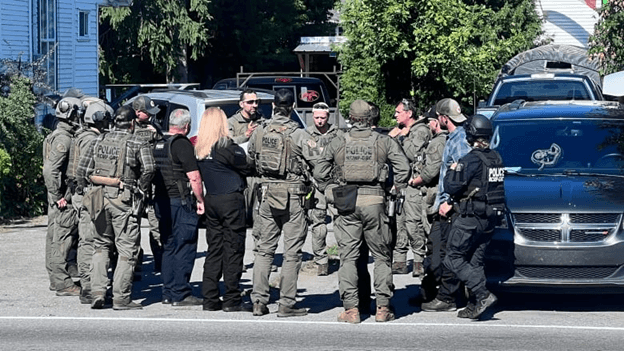
October 8, 2024
OTTAWA – As Canada’s Jewish community is facing increasing security threats, B’nai Brith is urging the Federal Government to implement a more stringent process for screening individuals coming from abroad for signs of radicalization.
“The recent wave of foiled terrorist plots involving radicalized individuals who sought to target Jewish Canadians underscores the urgent need for stronger security measures,” B’nai Brith contended Tuesday in its 4-page brief to the House of Commons Standing Committee on Public Safety and National Security (SECU). “Additional funding and resources must be allocated to strengthen Canada’s Integrated National Security Enforcement Teams (INSETs) [a joint-task force connecting local and national police forces] to expand their capacity to monitor, identify, and prevent the entry of individuals with extremist and antisemitic ideologies into Canada.”
Our first recommendation focuses on the entry of radicalized individuals into Canada. It calls for the creation of enhanced screening measures designed to detect any signs of radicalization or extremism, including displays of antisemitic beliefs, among individuals coming into Canada from other countries.
The second recommendation calls on the Government to investigate how and why hateful and extremist views are proliferating within Canadian society – including the role played by social media and certain entities based in this country. B’nai Brith has, for example, demonstrated that some Canadian institutions have been inviting foreign preachers such as Mohammed Hoblos “to promote radical ideologies that cross the line from religious discourse into antisemitic incitement.”
B’nai Brith prepared these recommendations to help SECU reinforce national security legislation, as part of a review process triggered by growing concerns about the number of foiled terror plots in Canada, particularly those targeting the Jewish community.
For instance, in July, the Royal Canadian Mounted Police (RCMP) arrested a father and son in Toronto for allegedly plotting a major attack. It later emerged that the father, Ahmed Mostafa Eldidi, may have fought for the Islamic State in Syria (ISIS) before immigrating to Canada. He became a citizen in May, weeks before his arrest.
“Unfortunately, the Eldidi case shows that there are Canadian citizens who are partaking in radical activity and who have been implicated in terrorist acts,” said David Granovsky, B’nai Brith Canada’s Director of Government Relations. “Minister Dominic LeBlanc [Public Safety, Democratic Institutions, and Intergovernmental Affairs] must ensure resources are dedicated to monitoring the spread of extremist views within the Canadian population, with specific attention to antisemitism and violence against the Jewish community.”
In early September, a joint INSET-United States Federal Bureau of Investigations (FBI) operation successfully thwarted another ISIS-linked plot, this time involving Muhammad Shahzeb Khan, a Pakistani national who reportedly entered Canada on a student visa.
Officers apprehended Khan as he was attempting to cross the border to New York, where he allegedly intended to murder Jews during the High Holidays.
“We commend Canadian security agencies for their round-the-clock efforts to keep our country safe,” said Richard Robertson, B’nai Brith Canada’s Director of Research and Advocacy. “But as our organization argued in its recent Federal Budget recommendations, the Government must place greater emphasis on national security.
“This is especially necessary to mitigate threats to the Jewish community, which faced an unprecedented number of antisemitic incidents in 2023.”


